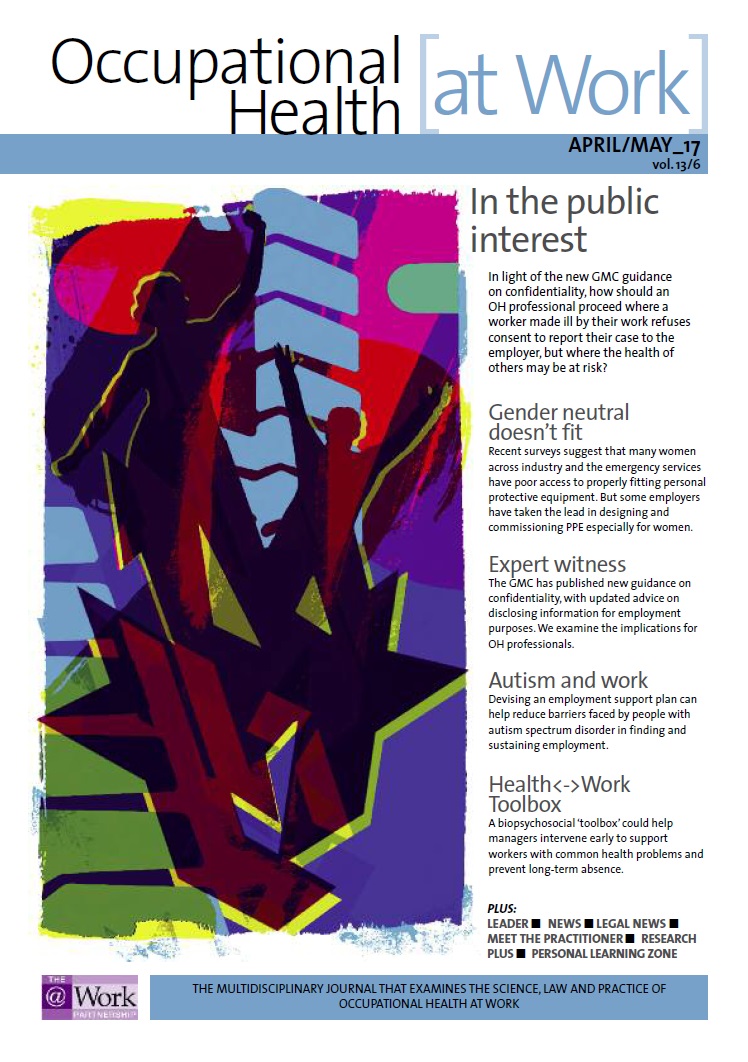April/May 2017 (vol. 13/6)
ContentsFeaturesNewsLegal
NewsResearch DigestResearch PlusCPD
Research Plus
Organisational change
Management change, low social capital, low organisational justice and poor quality of management were all predictive of older workers taking non-medical early retirement, this Danish prospective cohort study found. It involved 3,254 public service employees, aged 60–64 years who were, by virtue of their age, eligible for early retirement. Types of organisational change for each work unit were recorded from 2009 to 2011. Two-thirds (65%) of the study population experienced at least one organisational change during the two-year follow-up. Change was more common among healthcare workers (75%) and least frequent among laboratory technicians (46%). Over the two years, 21% of female and 14% of male employees took early retirement. After adjusting for age, gender and socioeconomic status, change of management increased the rate of early retirement by 37% (hazard ratio (HR) = 1.37; CI 1.13–1.66); merging work units increased it by 23% (HR 1.23; CI 1.01–1.49); and relocation increased it by 25% (HR 1.25; CI 1.01–1.54). Demerging did not have a significant effect (HR = 1.03; CI 0.79–1.33). After further adjusting for psychosocial work environment factors, only change of management remained predictive (HR = 1.27; CI 1.03–1.57). The following psychosocial work environment factors were also predictive of early retirement: work units with lower levels of social capital (HR = 1.22; CI 1.05–1.41); lower organisational justice (HR = 1.18; CI 1.04–1.32); and poor quality of management (HR = 1.14; CI 1.02–1.25) – these remained significant, with increasing effect sizes, after adjusting for organisational changes.
Scandinavian Journal of Work Environment & Health 2017; online first: doi:10.5271/sjweh.3624
Occupational Health at Work April/May 2017 (vol. 13/6) pp40



